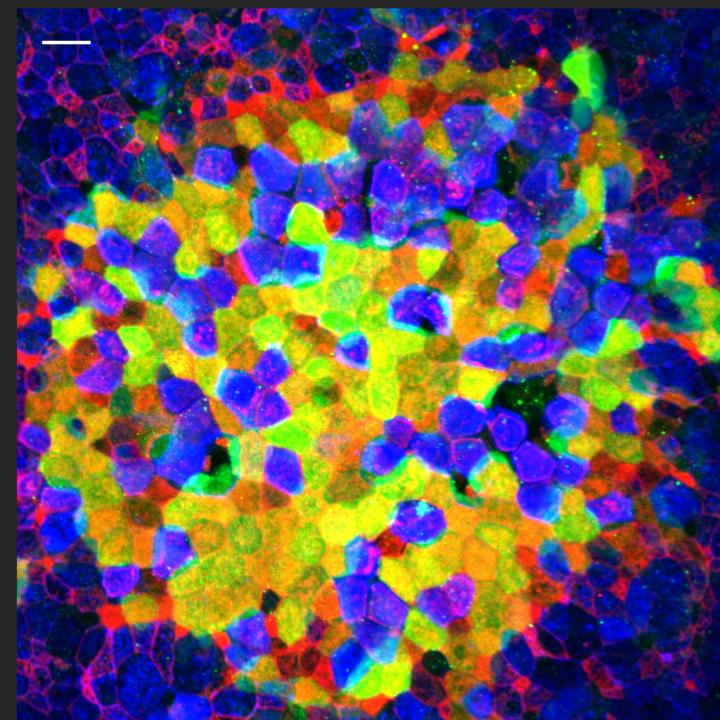Chicken gene find could help improve vaccines
The discovery of a gene active in specialised chicken gut cells paves the way for studies investigating better design of vaccines.

A key gene known as CSF1R has been found to be active in specialised epithelial cells, which line the surfaces of tissues in the body.
This was an unexpected finding as CSF1R is typically expressed in cells known as macrophages, which detect and kill infection, not in epithelial cells.
The results in studies with chicken cells pave the way for research looking to enhance the effectiveness of vaccines in chickens and at how pathogens invade the body.
Differences to mammal cells
Scientists at the Roslin Institute used transgenic reporter chickens — a method for visualising gene expression — to observe the transport of particles and pathogens by specialised epithelial cells.
These bear similarities to M cells in mammals, which have the same function. The key difference is the expression of the CSF1R gene in chicken M cells.
This discovery, published in the journal Frontiers in Immunology and funded by the Biotechnology and Biological Sciences Research Council, paves the way to studies using the CSF1R gene as a biological indicator of M cells to investigate infection and immunity in chickens.
The use of transgenic reporter chickens and imaging methods normally enables us to observe CSFR1 gene expression in macrophages, which detect and kill pathogens. We were surprised to find that this gene was also expressed in the chicken’s epithelium, but quickly realised that this provided an excellent opportunity to study chicken M cells at a level of detail that has not been possible before.
We will continue to work on M cells to better understand how they develop in the young chick, whether they can be targeted to improve vaccine uptake and how they are abused by invading pathogens to infect chickens.
** The Roslin Institute is part of the University of Edinburgh’s Royal (Dick) School of Veterinary Studies. **


